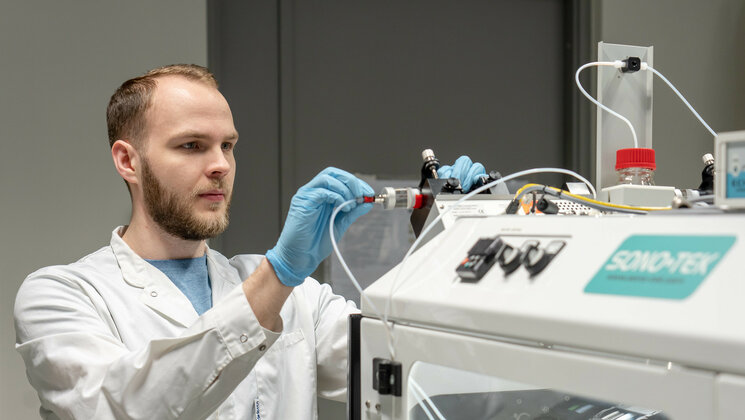-
Faculty of Arts and HumanitiesDean's Office, Faculty of Arts and HumanitiesJakobi 2, r 116-121 51005 Tartu linn, Tartu linn, Tartumaa EST0Institute of History and ArchaeologyJakobi 2 51005 Tartu linn, Tartu linn, Tartumaa EST0Institute of Estonian and General LinguisticsJakobi 2, IV korrus 51005 Tartu linn, Tartu linn, Tartumaa ESTInstitute of Philosophy and SemioticsJakobi 2, III korrus, ruumid 302-337 51005 Tartu linn, Tartu linn, Tartumaa EST0Institute of Cultural ResearchÜlikooli 16 51003 Tartu linn, Tartu linn, Tartumaa EST0Institute of Foreign Languages and CulturesLossi 3 51003 Tartu linn, Tartu linn, Tartumaa EST0School of Theology and Religious StudiesÜlikooli 18 50090 Tartu linn, Tartu linn, Tartumaa EST0Viljandi Culture AcademyPosti 1 71004 Viljandi linn, Viljandimaa EST0Professors emeritus, Faculty of Arts and Humanities0Associate Professors emeritus, Faculty of Arts and Humanities0Faculty of Social SciencesDean's Office, Faculty of Social SciencesLossi 36 51003 Tartu linn, Tartu linn, Tartumaa EST0Institute of EducationJakobi 5 51005 Tartu linn, Tartu linn, Tartumaa EST0Johan Skytte Institute of Political StudiesLossi 36, ruum 301 51003 Tartu linn, Tartu linn, Tartumaa EST0School of Economics and Business AdministrationNarva mnt 18 51009 Tartu linn, Tartu linn, Tartumaa EST0Institute of PsychologyNäituse 2 50409 Tartu linn, Tartu linn, Tartumaa EST0School of LawNäituse 20 - 324 50409 Tartu linn, Tartu linn, Tartumaa EST0Institute of Social StudiesLossi 36 51003 Tartu linn, Tartu linn, Tartumaa EST0Narva CollegeRaekoja plats 2 20307 Narva linn, Ida-Virumaa EST0Pärnu CollegeRingi 35 80012 Pärnu linn, Pärnu linn, Pärnumaa EST0Professors emeritus, Faculty of Social Sciences0associate Professors emeritus, Faculty of Social Sciences0Faculty of MedicineDean's Office, Faculty of MedicineRavila 19 50411 Tartu linn, Tartu linn, Tartumaa ESTInstitute of Biomedicine and Translational MedicineBiomeedikum, Ravila 19 50411 Tartu linn, Tartu linn, Tartumaa ESTInstitute of PharmacyNooruse 1 50411 Tartu linn, Tartu linn, Tartumaa ESTInstitute of DentistryL. Puusepa 1a 50406 Tartu linn, Tartu linn, Tartumaa ESTInstitute of Clinical MedicineL. Puusepa 8 50406 Tartu linn, Tartu linn, Tartumaa ESTInstitute of Family Medicine and Public HealthRavila 19 50411 Tartu linn, Tartu linn, Tartumaa ESTInstitute of Sport Sciences and PhysiotherapyUjula 4 51008 Tartu linn, Tartu linn, Tartumaa ESTprofessors emeritus, Faculty of Medicine0associate Professors emeritus, Faculty of Medicine0Faculty of Science and TechnologyDean's Office, Faculty of Science and TechnologyVanemuise 46 - 208 51003 Tartu linn, Tartu linn, Tartumaa ESTInstitute of Computer ScienceNarva mnt 18 51009 Tartu linn, Tartu linn, Tartumaa ESTInstitute of GenomicsRiia 23b/2 51010 Tartu linn, Tartu linn, Tartumaa ESTEstonian Marine Institute0Institute of PhysicsInstitute of ChemistryRavila 14a 50411 Tartu linn, Tartu linn, Tartumaa ESTInstitute of Mathematics and StatisticsNarva mnt 18 51009 Tartu linn, Tartu linn, Tartumaa EST0Institute of Molecular and Cell BiologyRiia 23, 23b - 134 51010 Tartu linn, Tartu linn, Tartumaa ESTTartu ObservatoryObservatooriumi 1 61602 Tõravere alevik, Nõo vald, Tartumaa EST0Institute of TechnologyNooruse 1 50411 Tartu linn, Tartu linn, Tartumaa ESTInstitute of Ecology and Earth SciencesJ. Liivi tn 2 50409 Tartu linn, Tartu linn, Tartumaa ESTprofessors emeritus, Faculty of Science and Technology0associate Professors emeritus, Faculty of Science and Technology0Area of Academic SecretaryHuman Resources OfficeÜlikooli 18, ruumid 302 ja 304 50090 Tartu linn, Tartu linn, Tartumaa EST0Area of Head of FinanceFinance Office0Area of Director of AdministrationInformation Technology Office0Administrative OfficeÜlikooli 17 (III korrus) 51005 Tartu linn, Tartu linn, Tartumaa EST0Estates Office0Marketing and Communication OfficeÜlikooli 18, ruumid 102, 104, 209, 210 50090 Tartu linn, Tartu linn, Tartumaa EST0Area of RectorRector's Strategy OfficeInternal Audit OfficeArea of Vice Rector for Academic AffairsOffice of Academic AffairsUniversity of Tartu Youth AcademyUppsala 10 51003 Tartu linn, Tartu linn, Tartumaa ESTStudent Union OfficeÜlikooli 18b 51005 Tartu linn, Tartu linn, Tartumaa EST0Centre for Learning and TeachingArea of Vice Rector for ResearchUniversity of Tartu LibraryW. Struve 1 50091 Tartu linn, Tartu linn, Tartumaa ESTGrant OfficeArea of Vice Rector for DevelopmentCentre for Entrepreneurship and InnovationNarva mnt 18 51009 Tartu linn, Tartu linn, Tartumaa EST0University of Tartu Natural History Museum and Botanical GardenVanemuise 46 51003 Tartu linn, Tartu linn, Tartumaa EST0International Cooperation and Protocol Office0University of Tartu MuseumLossi 25 51003 Tartu linn, Tartu linn, Tartumaa EST0
Doctoral defence: Mariliis Hinnu "In Vitro Methods for Studying the Mechanisms of Ribosome-Targeting Antibiotics"
On 13 May at 14:15, Mariliis Hinnu will defend her doctoral thesis in biomedical technology "In Vitro Methods for Studying the Mechanisms of Ribosome-Targeting Antibiotics".
Supervisors:
Professor Tanel Tenson, University of Tartu
Professor Karin Kogermann, University of Tartu
Research Fellow Marta Putrinš, University of Tartu
Opponent:
Professor Alex J. O’Neill, University of Leeds, United Kingdom
Summary:
Protein biosynthesis, or translation, taking place in the ribosome is a fundamental life process. Therefore, bacterial ribosome is a major target for antibacterials. Due to the rapid spread of antibiotic resistance, it is important to make current pharmaceuticals and treatment schemes more efficient, as well as develop new and better ones. Before any clinical trials in humans, it is vital to test all potential drug candidates thoroughly in vitro as well as in infection models (cell and tissue culture / animal models). Classical in vitro environments are far from infection-mimicking conditions. The aim of the thesis was to develop in vitro methods, which would allow to study antibiotics in a biologically relevant environment. The thesis was focused on ribosome-targeting antibiotics.
Methods were developed in this PhD thesis to: i) measure antibiotic release from nanofibers intended for local wound therapy; ii) explain whether the addition of blood buffer component bicarbonate improves the clinical predictability of antibiotic susceptibility tests; and iii) measure the effects of antibiotics on translational fidelity in bacteria. In contrast to large differences in drug release between tested mats seen in standard release assays in liquid environment, developed semi-solid release methods revealed only minor differences between the mats. Studies of bicarbonate effect showed clearly that the antibiotic potency was affected by the pH change of the medium induced by insufficiently buffered bicarbonate. Additionally, a new fluorescence-based bacterial translational fidelity reporter system was developed, which gave new insights into translational accuracy in different strains, growth environments, including in intracellular infection model, and upon antibiotic exposure. In summary, the developed methods allow to study ribosome-targeting antibiotics more efficiently.
Defence can be followed in Zoom: https://ut-ee.zoom.us/j/9530588152?pwd=ZzgzMjY4YytzUkZ5aVRCd2pOdVNQQT09 (meeting ID: 953 058 8152, passcode: kaitsmine).
Doctoral defence: Mariliis Hinnu "In Vitro Methods for Studying the Mechanisms of Ribosome-Targeting Antibiotics"
Doctoral defence: Chung-Yueh Yeh "Characterization of MPK and HT1 kinases in CO2-induced stomatal movements"

University brings top professionals and future technologies to Ida-Viru County

